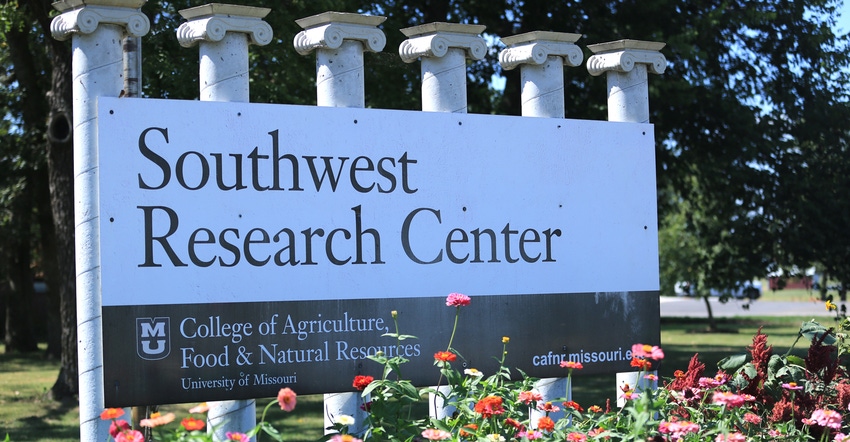
Citing budget cuts, the University of Missouri is restructuring its statewide research centers, creating four experiment station hubs.
For the past year, a task force met to review the MU College of Agriculture, Food and Natural Resources (CANR) research centers. The group found that the lack of funding “negatively affected the AES [Missouri Agricultural Experiment Station] to stay at the forefront of the basic, translational and applied research.”
They further noted that reduced funds resulted in less faculty, outdated infrastructure and reduced impact of research activities.
The task force recently presented their written recommendations to University of Missouri President Mun Choi, who approved the findings and set Mizzou on a course to realign its research farms by spring 2022.
Where are the new MU research hubs?
Across the state there are 22 research centers. The task force recommended a change of these facilities into four Agricultural Experiment Station hubs and four other MU Extension and education hubs. This move comes with a reported $800,000 in savings.
The restructuring is as follows:
AES Research, Extension and Education Centers. These centers and farms will be operated by CAFNR AES and are recommended to be full-fledged laboratories “with the ability to focus on research and educational needs that apply statewide and also the ability to focus on the various agricultural needs of their particular region — needs that often differ from other areas of the state,” the report states.
1. Southwest Research, Extension and Education Center, Mt. Vernon (893 acres)
2. T.E. “Jake” Fisher Delta Research, Extension and Education Center, Portageville (977 acres)
3. Mid-Missouri Research, Extension and Education Center
Bradford Farm (591 acres)
Horticulture and Agroforestry Farm (700 acres)
Sanborn Field (5 acres)
South Farm (1,452 acres)
Baskett Farm (2,251 acres)
4. Northern Research, Extension and Education Center
Lee Greenley Jr. Memorial Farm (1,390 acres)
Cornett Farm (1,200 acres)
Thompson Farm (1,600 acres)
MU Extension and Education Centers. These four former research centers will be operated by MU Extension. According to the task force report, these farms do not have intensive research activities and are mainly used for education and demonstration purposes. They will now be grouped together and form two regional Extension hubs.
1. Northwest
Graves-Chapple MU Extension and Education Center (199 acres)
Hundley-Whaley MU Extension and Education Center (375 acres)
2. Central
Wurdack MU Extension and Education Center (1,217 acres)
Jefferson Farm MU Extension and Education Center (67 acres)
The restructuring ensures Mizzou fulfills its missions of education, research, service and economic development at the highest levels by “improving our agriculture research and outreach but doing so in a way that utilizes our financial resources efficiently,” Choi said in a news release.
However, there are still eight other research centers across the state.
Research revoked
According to the report, the remaining properties would be leased, partnered, self-sustainable or divested. However, some of these locations still have gift or endowment agreements, which will be reviewed. The task force suggested that if any farm is divested, the proceeds will be placed in an endowment to support the AES.
Those MU CAFNR Research Centers likely to go away include:
Foremost Dairy — however, the group recommended this be relocated to the South Farm as a teaching dairy, then the property could be repurposed
Turkey
Timmons
Schnabel Woods
Claypann
Bertha Brown
Land of Osage (self-supporting, per endowment)
Sorensen Farm
Under the new plan, each Agricultural Experiment Station hub will have one director. The other two MU Extension regional centers will have a part-time director.
Shibu Jose, associate dean for research and director of AES, said, “We are one statewide experiment station. The new structures will allow us to function cohesively as an experiment station with MU Extension and will maintain the relevancy for Missouri agriculture far into the 21st century.”
The transition is to be complete by spring 2022. For the complete Missouri Agricultural Experiment Station task force report and who comprised the group, click here.
About the Author(s)
You May Also Like






